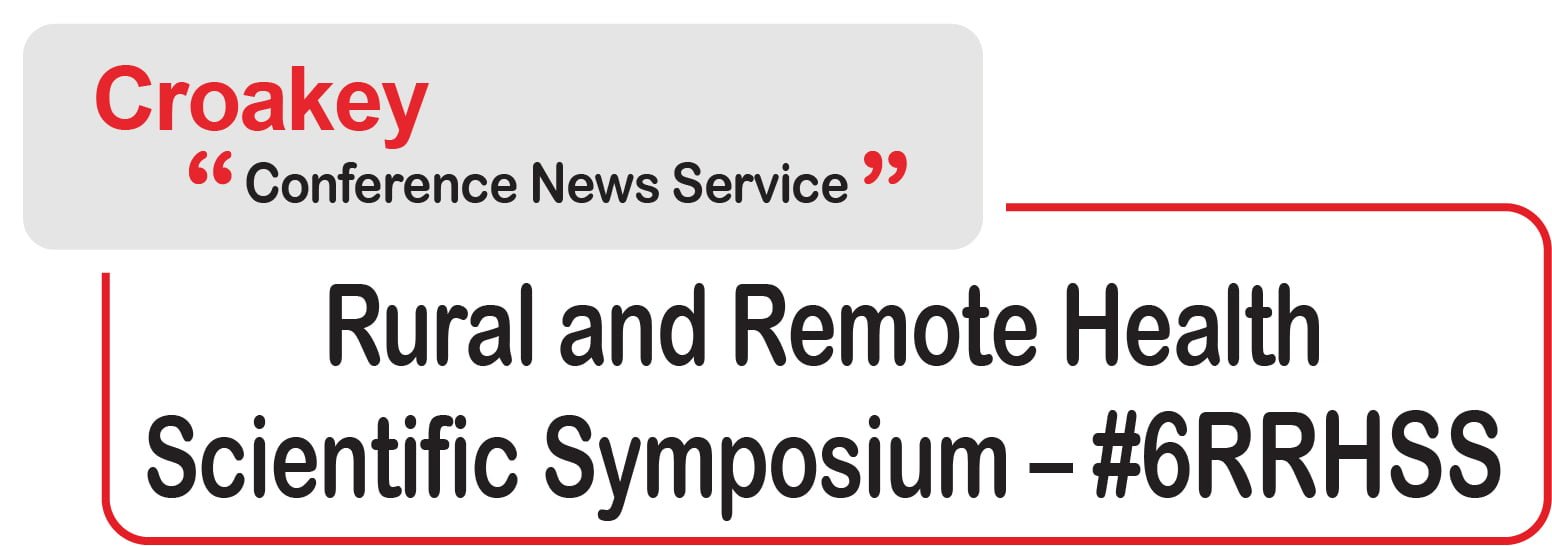The new CEO of the National Rural Health Alliance (NRHA), Mark Diamond, has a few questions for health leaders ahead of the 6th Rural and Remote Health Scientific Symposium in Canberra next month.
Mark Diamond writes:
When leaders in rural and remote health research converge upon Canberra early next month for the 6th Rural and Remote Health Scientific Symposium, I hope they will do three things.
First, I hope they will be able to demonstrate how research has led to some significant health gains for rural and remote communities since the first such symposium was held in Toowoomba in 1992.
Secondly, if research has not led to the health gains that we might have expected, I hope the meeting will give us a sound understanding of why this has happened, and how we can ensure better health returns from research in the future.
I am sure these insights will be of great interest and use to many people across diverse fields, whether in rural and remote health or in the wider health and social sector.
Tough questions
Thirdly, I hope that participants in the symposium will ask some tough questions of the National Rural Health Alliance about what we are actually delivering for the health of people living in rural and remote areas.
Since being appointed as CEO of the Alliance last December, this question has been much on my mind.

Our overall remit at the Alliance is to improve health outcomes for people in rural and remote areas. If we’re not achieving that, then we’re not doing our job. We need to justify everything we do in that context.
For Croakey readers who may not know my background, I spent my formative years in central Victoria, and came to my current role with the Alliance with more than 20 years experience in managing health and community services in rural, and regional areas across Victoria, NSW and SA. I have also led community mental health reforms in a metropolitan centre, and worked for the Uniting Church based in Darwin establishing a major new aged care provider.
So I bring diverse professional and lived experience from a range of health and community settings to my new role. I also bring a deep conviction about the importance of access to healthcare as a fundamental determinant of health.
It is good that we increasingly are talking about and seeking to address the wider determinants of health. But that is a challenging and ambitious quest, requiring action from every arm of government, the private sector and multiple stakeholders and agencies.
Actually, I can’t imagine a bigger task – especially given the challenges that we already have in getting a few of the key players talking constructively and acting collaboratively.
Prioritise access
Given this reality, I believe that the objective the NRHA can most usefully work towards is improving access to healthcare for people living in remote, rural and regional communities.
Access to timely, appropriate and affordable healthcare is a major determinant of health outcomes. It’s something I think we at the Alliance and our networks can do a lot about.
I am hopeful that the #6rrhss will provide useful knowledge to help us in developing a minimum expectation around service access for country communities.
In doing this work, we need to acknowledge that there is not only a gradient between the health of metropolitan and rural/remote communities, but that there is a gradient within rural and remote areas.
The National Strategic Framework for Rural and Remote Health, endorsed by COAG some years ago, was intended to be used by each jurisdiction in guiding the development and framework of health services.
Every health minister signed off on it at the time. But, so far as I am aware, it has never been properly evaluated, and I think we can rightly ask some hard questions about how useful and effective it’s been.
It’s time that we had a new national rural and remote health strategy. We must ensure that it does actually make a difference.
One way we can achieve this is by maintaining a very strong focus on ensuring greater equity in access to healthcare, recognising that there is also considerable inequity within rural and remote areas.
We want to delineate what service access means for various community settings and contexts – what are the services that need to be available and how should they be provided?
Solutions focus
I believe there are two key ways forward: one is through making better use of technology; and the other is through addressing workforce maldistribution, including through ensuring all health disciplines (not only medicine) have a generalist component.
I’d like to see us doing more to recruit people from rural and remote areas into allied health education, training and placement, for example.
I hope the 6th Rural and Remote Health Scientific Symposium will contribute towards the development of a more extensive evidence base about what models of healthcare work best for different rural and remote locations.
Most of all, I’m hoping that all symposium participants keep their focus on solutions – rather than yet more iteration of the health challenges for rural and remote communities.
We need to make sure we are developing these solutions in partnership with communities, recognising that there is no one-sized solution that will help everyone. We need to tailor make rural and remote health solutions.
I encourage Croakey readers to follow the Symposium discussions on Twitter at #6rrhss and via our Facebook page. And please join the conversation.
• Mark Diamond is CEO of the National Rural Health Alliance.
Jennifer Doggett will cover the 6th Rural and Remote Health Scientific Symposium, for the Croakey Conference News Service.










